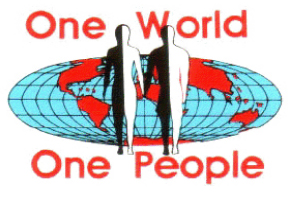
Trotskyism is the political ideology and branch of Marxism developed by Ukrainian-Russian revolutionary Leon Trotsky and by some other members of the Left Opposition and Fourth International. Trotsky self-identified as an orthodox Marxist, a revolutionary Marxist, and Bolshevik–Leninist, a follower of Marx, Engels, and of 3L: Vladimir Lenin, Karl Liebknecht, Rosa Luxemburg. He supported founding a vanguard party of the proletariat, proletarian internationalism, and a dictatorship of the proletariat based on working class self-emancipation and mass democracy. Trotskyists are critical of Stalinism as they oppose Joseph Stalin's theory of socialism in one country in favor of Trotsky's theory of permanent revolution. Trotskyists also criticize the bureaucracy and anti-democratic current that developed in the Soviet Union under Stalin.
The French Trotskyist political party Union Communiste is usually known as Lutte Ouvrière, after the name of its weekly paper. Arlette Laguiller has been the party's spokeswoman since 1973 and ran in each presidential election until 2012, when Nathalie Arthaud was the candidate. Robert Barcia (Hardy) was its founder and central leader. Lutte Ouvrière is a member of the Internationalist Communist Union. It emphasises workplace activity and has been critical of such recent phenomena as alter-globalization.
Systematic ideology is a study of ideologies founded in the late 1930s in and around London, England by Harold Walsby, George Walford and others. It seeks to understand the origin and development of ideologies, how ideologies and ideological groups work together and the possibilities of guiding the development of ideologies on a global scale. The basic premise of systematic ideology is that ideology is the central motivator in human affairs; that the characteristics that make up the major ideologies come in sets; that those sets of characteristics form a series; and that the ideological series forms a system.
Socialist Studies is the name of a quarterly socialist periodical and of the group which publishes it. The group was founded in 1991 by sixteen expelled members of the Socialist Party of Great Britain (SPGB) who claim that their expulsions were the result of an anti-socialist conspiracy. Though small, the group has remained an active and vocal critic of the SPGB since its inception.

The World Socialist Party of India (WSPI) is an Indian political party founded in 1995.
The history of the Socialist Workers Party begins with the formation of the Socialist Review Group in 1950, followed by the creation of the International Socialists in 1962 and continues through to the present day with the formation of the Socialist Workers Party in 1977.

The Anti-Parliamentary Communist Federation (APCF) was a communist group in the United Kingdom. It was founded by the group around Guy Aldred's Spur newspaper – mostly former Communist League members – in 1921. They included John McGovern.
The Socialist League was an organisation inside the British Labour Party, which sought to push it to the left. It was formed in 1932, through a merger between the National ILP Affiliation Committee (NILP) and the Society for Socialist Inquiry and Propaganda (SSIP), and ceased to exist in 1937.
The Socialist Propaganda League was a tiny socialist group active in London from circa 1911 to 1951.
The Turner Controversy was a dispute within the Socialist Party of Great Britain (SPGB) regarding the nature of socialism instigated by party member Tony Turner. The dispute ultimately led to an exodus of members who formed the short-lived Movement for Social Integration.
Libertarian Communism was a socialist journal founded in 1974 and produced in part by members of the Socialist Party of Great Britain.
Spanner was a British journal on non-market socialism.
The International Committee of the Fourth International (ICFI) is the name of two Trotskyist internationals; one with sections named Socialist Equality Party which publishes the World Socialist Web Site, and another linked to the Workers Revolutionary Party in the UK.
Solidarity was a small libertarian socialist organisation from 1960 to 1992 in the United Kingdom. It published a magazine of the same name. Solidarity was close to council communism in its prescriptions and was known for its emphasis on workers' self-organisation and for its radical anti-Leninism.

The Socialist Party of Great Britain (SPGB) is a socialist political party in the United Kingdom. Founded in 1904 as a split from the Social Democratic Federation (SDF), it advocates using the ballot box for revolutionary purposes and opposes both Leninism and reformism. It holds that countries which claimed to have established socialism had only established "state capitalism" and was one of the first to describe the Soviet Union as state capitalist. The party's political position has been described as a form of impossibilism.
The World Socialist Movement (WSM) is an international organisation of socialist parties created in 1904 with the founding of the Socialist Party of Great Britain (SPGB).

The Committee for a Workers' International (CWI) was an international association of Trotskyist political parties. Today, two groups claim to be the continuation of the CWI.

The International Socialist Tendency (IST) is an international grouping of unorthodox Trotskyist organisations espousing the ideas of Tony Cliff (1917–2000), founder of the Socialist Workers Party (SWP) in Britain. It has sections across 27 countries; however, its strongest presence is in Europe, especially in Britain.





